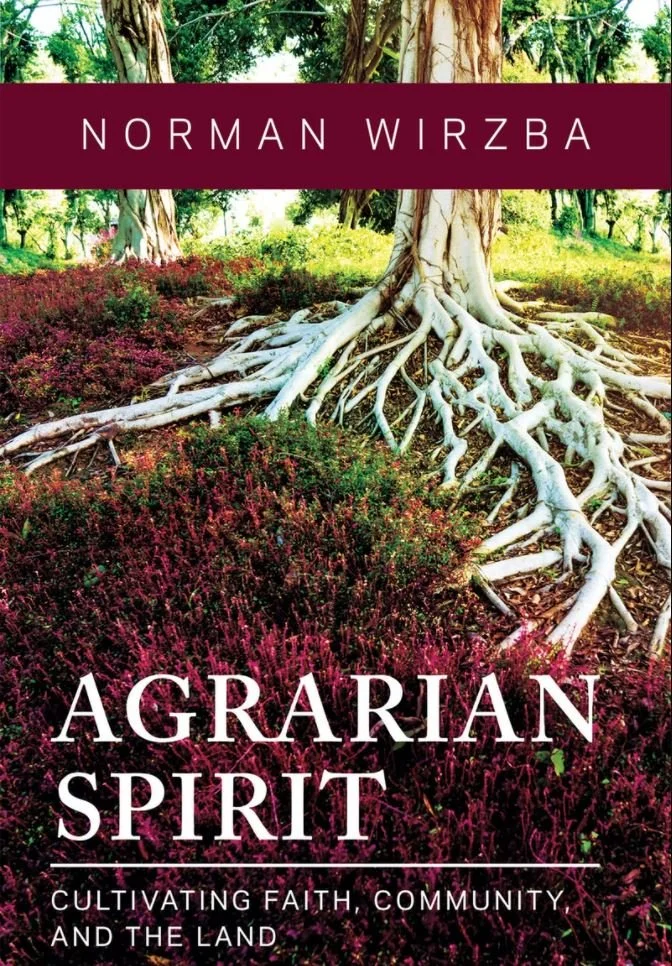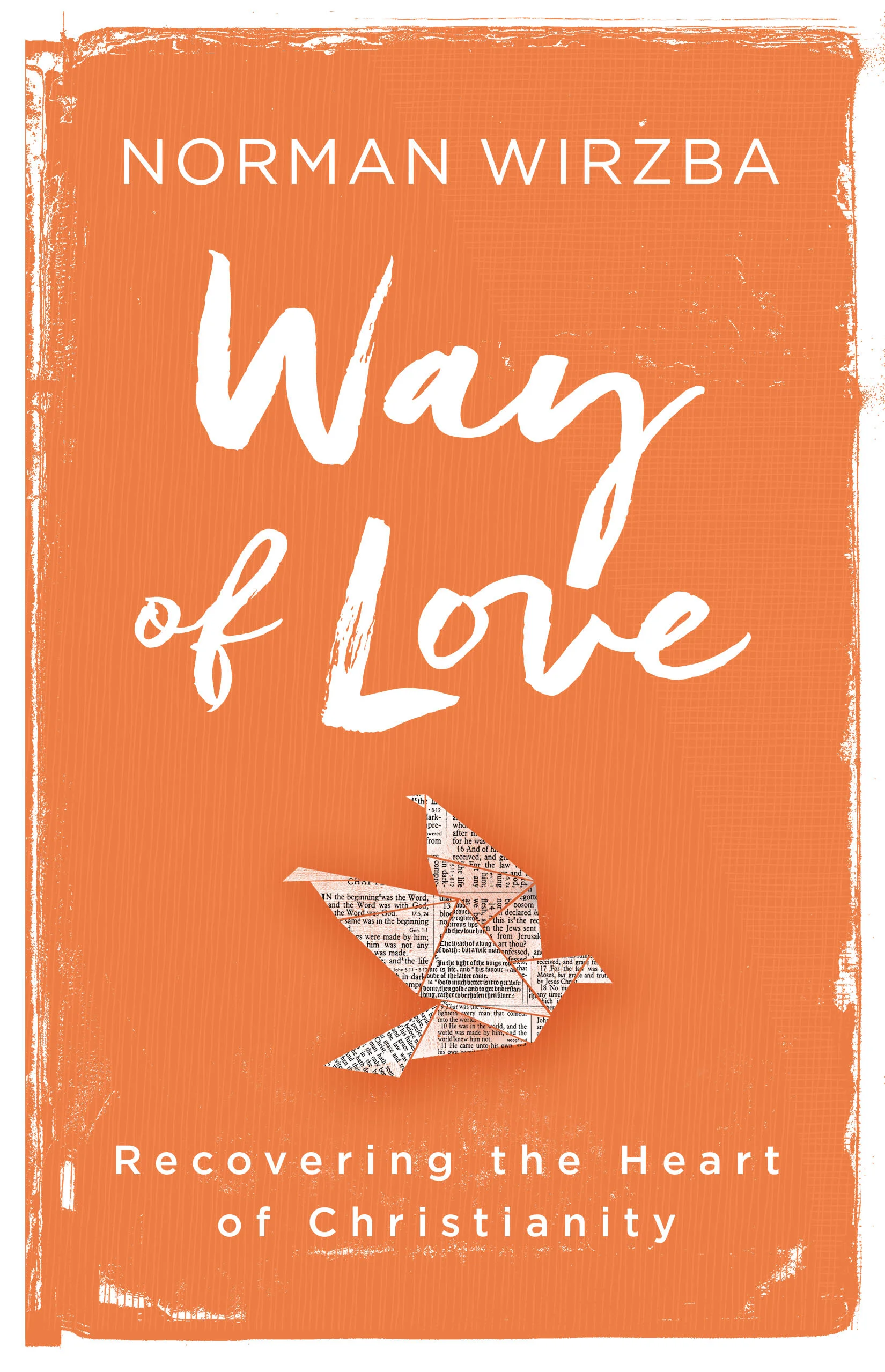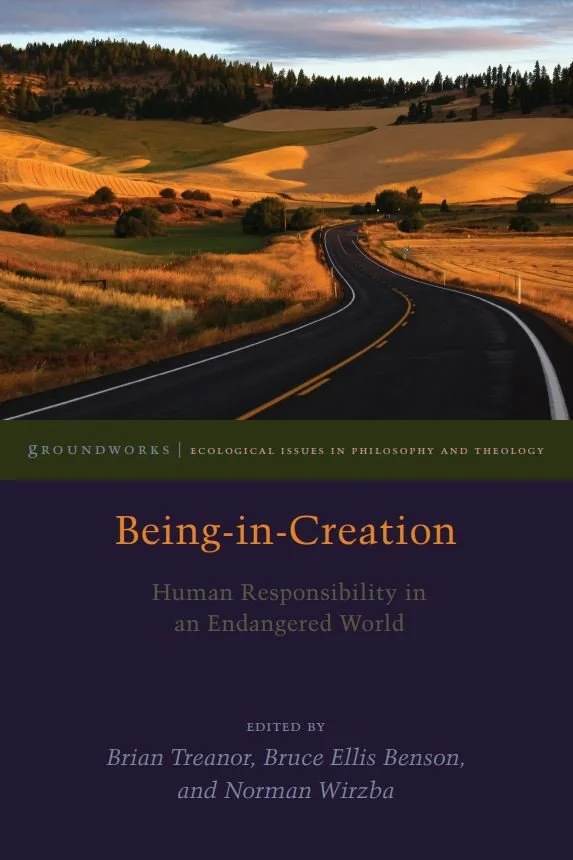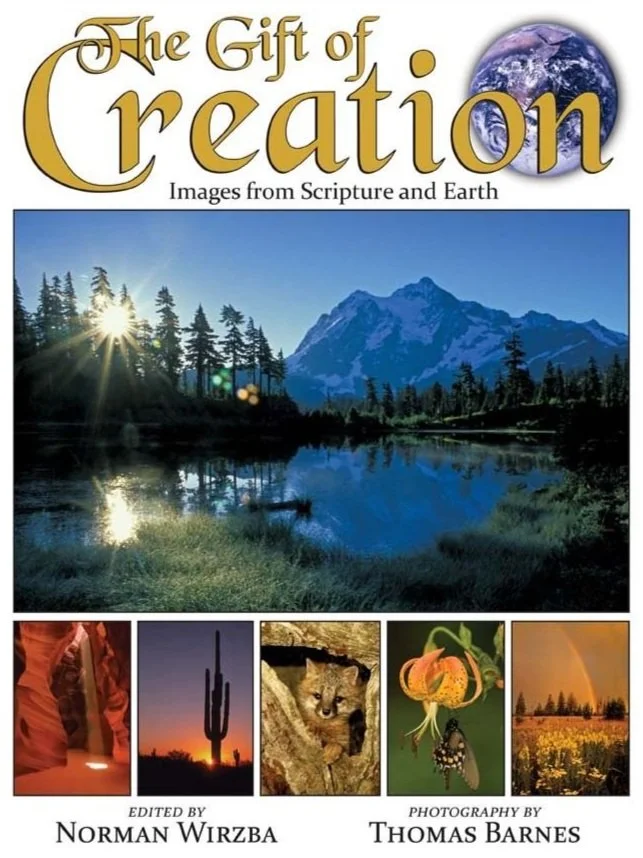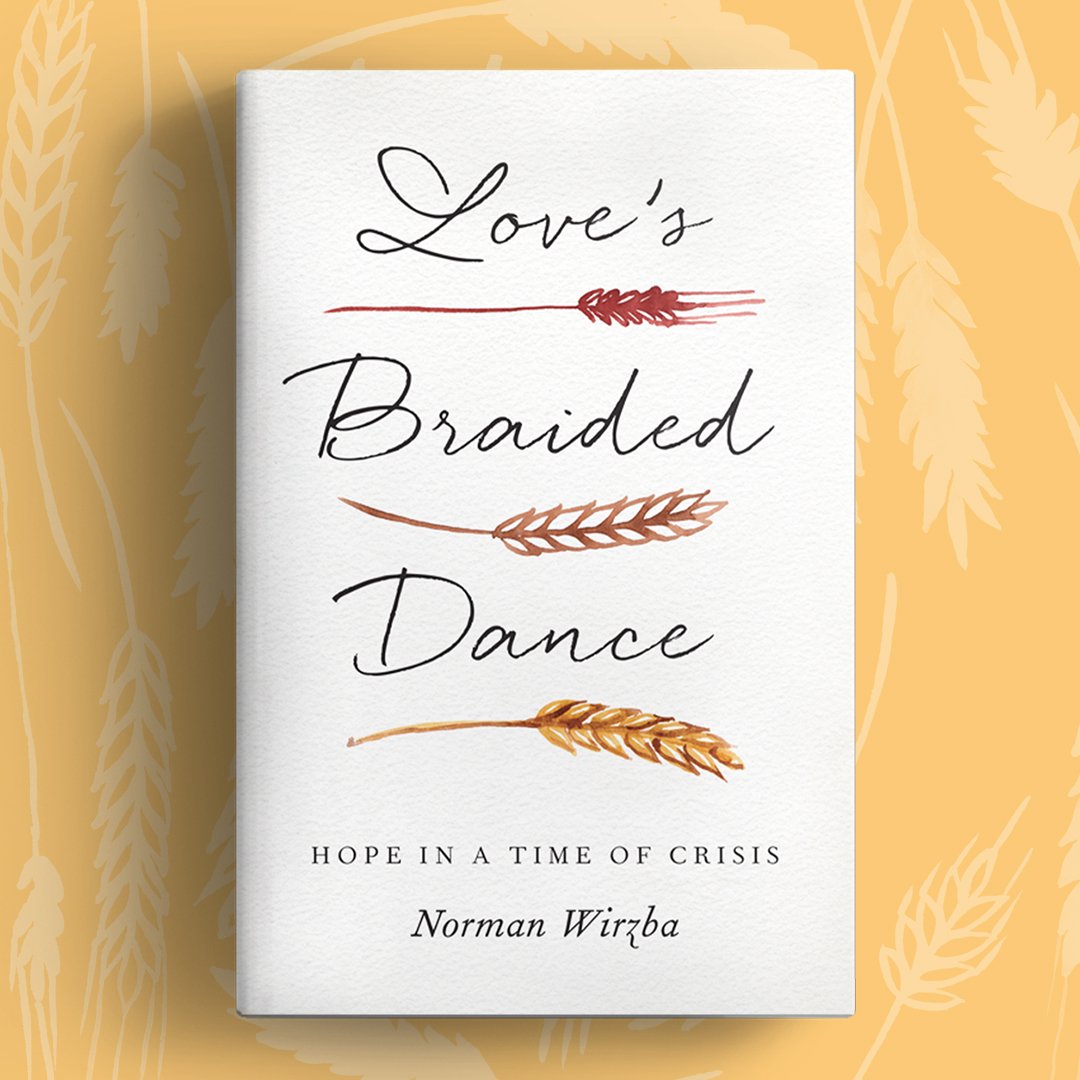

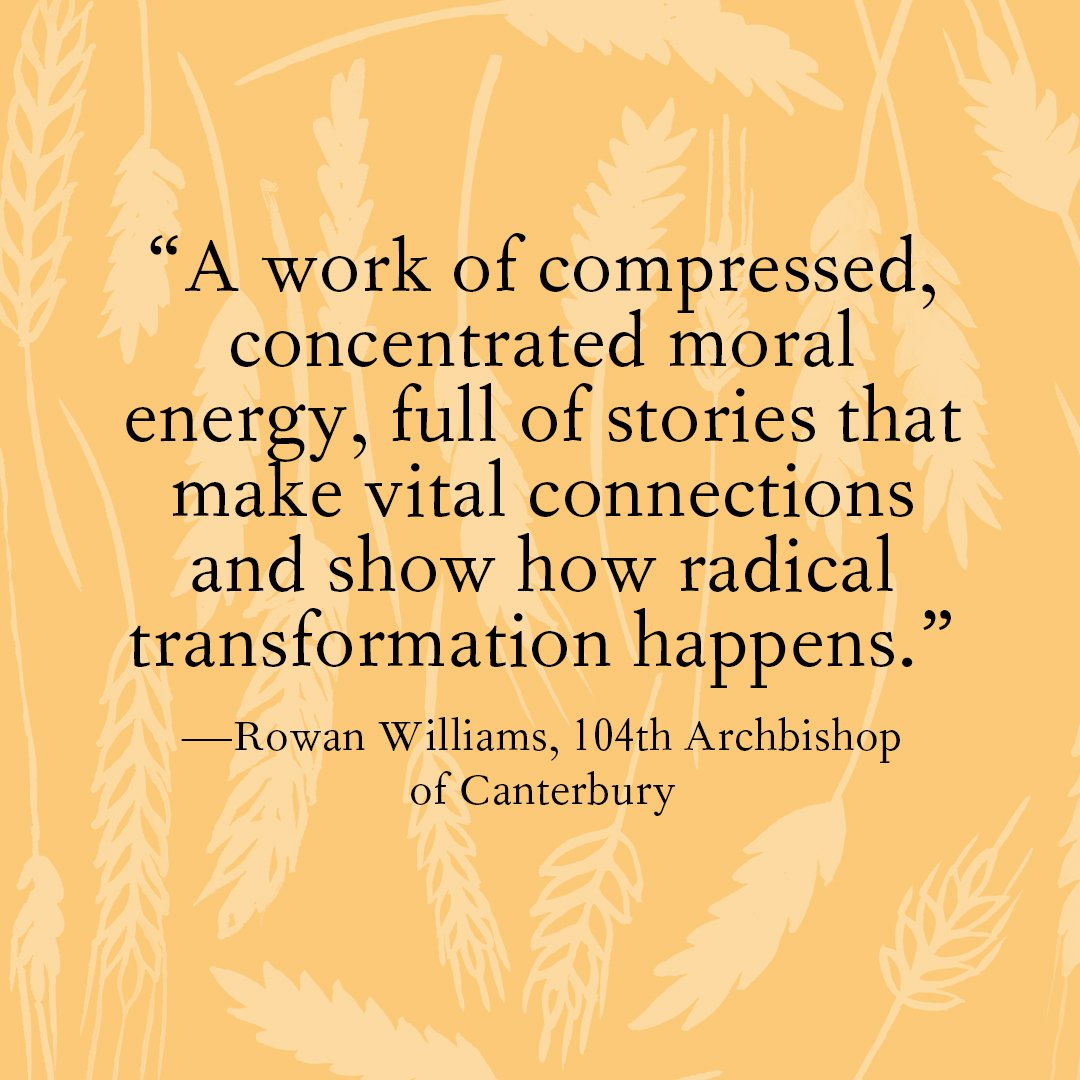
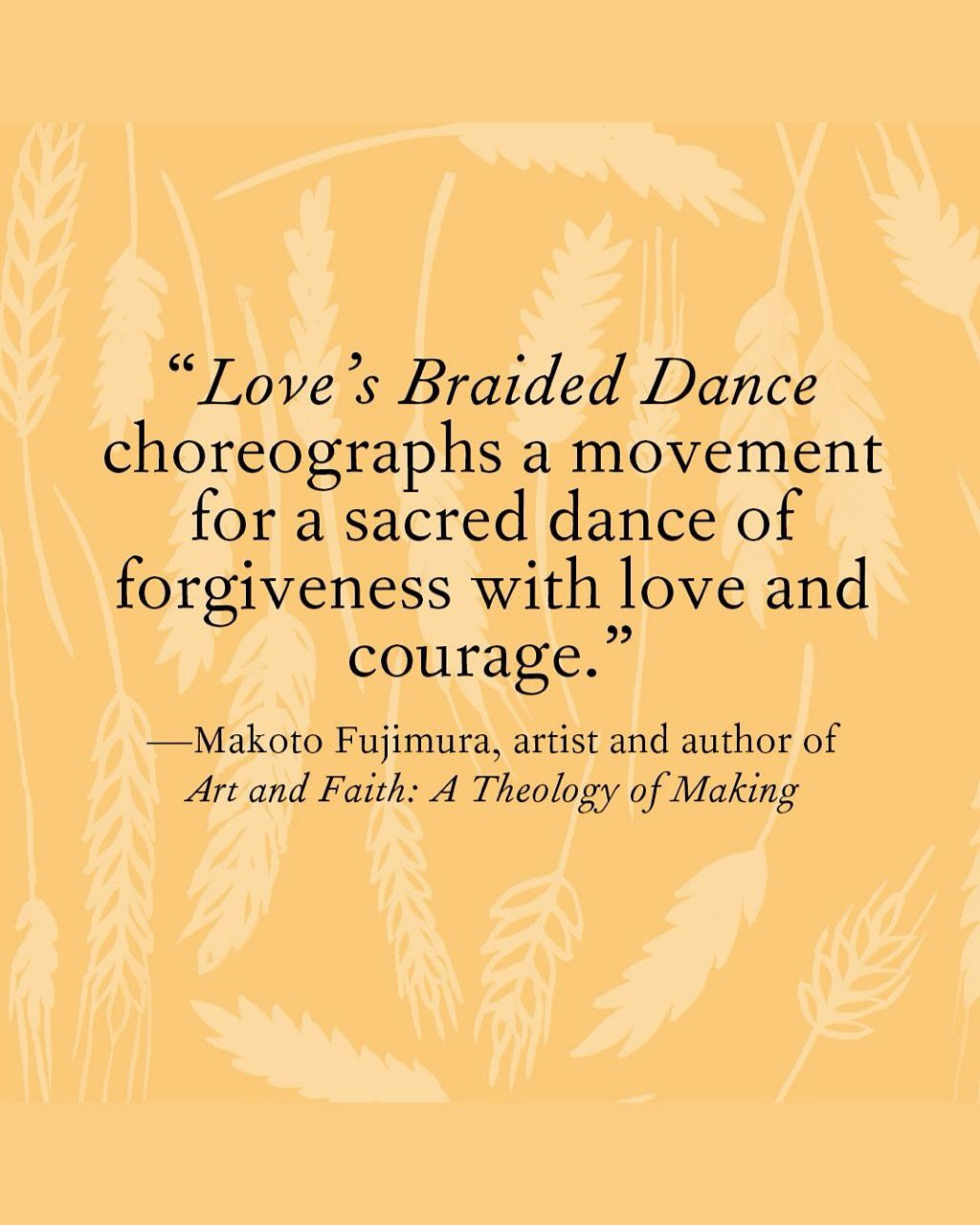
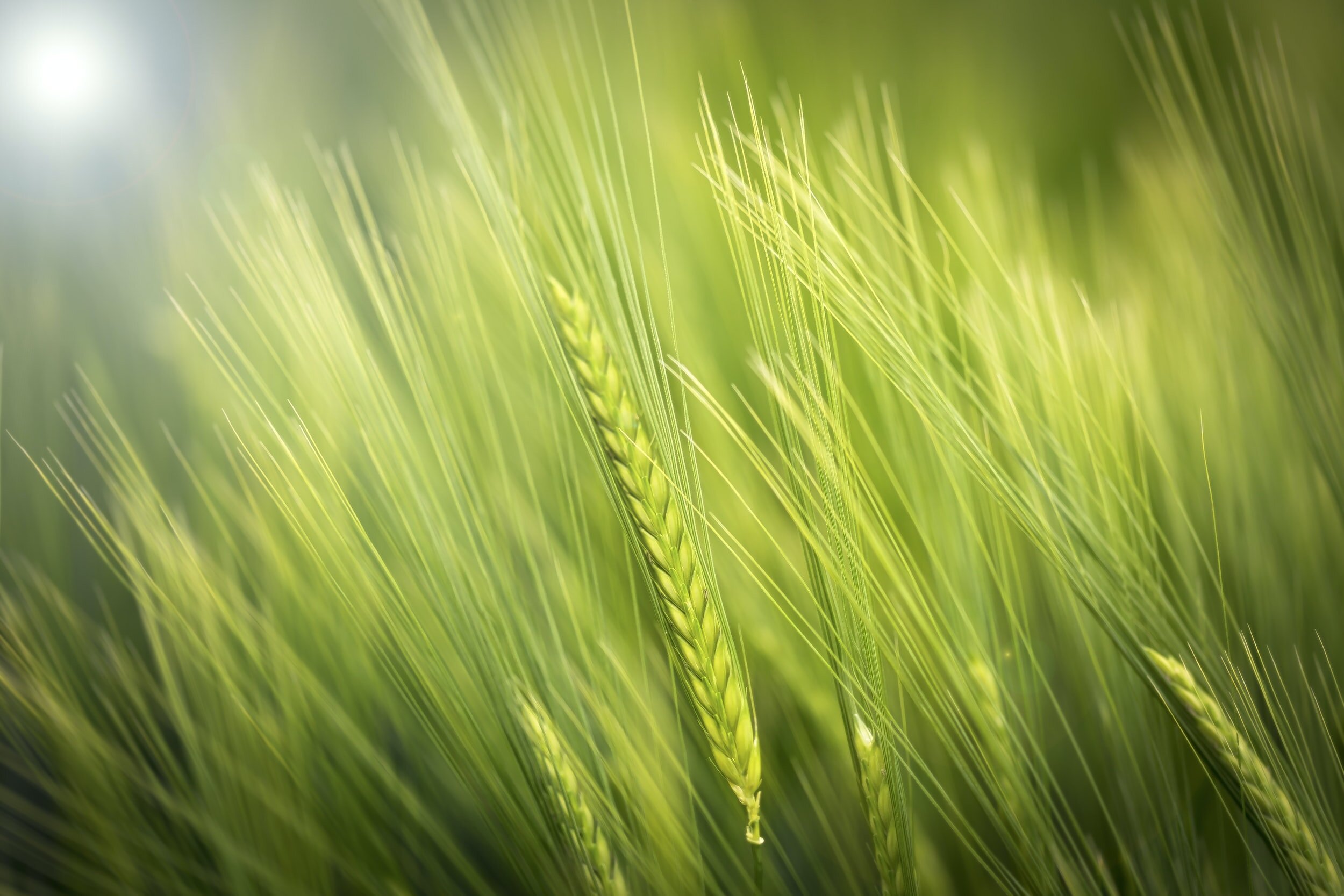
How can we live with hope in the midst of a deeply wounded world?
Published by Cambridge University Press
In a time of climate change, environmental degradation, and social injustice, the question of the value and purpose of human life has become urgent. What are the grounds for hope in a wounded world? This Sacred Life gives a deep philosophical and religious articulation of humanity's identity and vocation by rooting people in a symbiotic, meshwork world that is saturated with sacred gifts. The benefits of artificial intelligence and genetic enhancement notwithstanding, Norman Wirzba shows how an account of humans as interdependent and vulnerable creatures orients people to be a creative, healing presence in a world punctuated by wounds. He argues that the commodification of places and creatures needs to be resisted so that all life can be cherished and celebrated. Humanity's fundamental vocation is to bear witness to God's love for creaturely life, and to commit to the construction of a hospitable and beautiful world.
SYNDICATE Symposium on
This Sacred Life:
Living Wisely by Amy Plantinga Pauw
The Natural and the Unnatural
by Natalie Carnes
The Materiality of Culture
by Jonathan Tran
Soil, Situatedness, and Repair
by Saskia Cornes
This Life by Dirk Philipsen
Books Authored
-
Agrarian Spirit: Cultivating Faith, Community, and the Land
"This lovely book is full of invigorating surprises. For the many of us who don’t live on farms, Wirzba’s reflections offer an invitation to reclaim in practical ways our relationship with the earth and its creatures who, with us, depend on all that has been entrusted to us for stewardship, for sharing, and for grateful enjoyment."
—Marilyn McEntyre, author of Caring for Words in a Culture of Lies
"What ails us most is not susceptible of mere technological remediation, which by now has become an expensive enterprise in endless and ineffectual tinkering. Our most serious problems run much deeper, and they require the diagnostic and prescriptive powers of a mind at once capacious, clear, and reverent—a mind such as we see at work here. This would merely be a fine book were it not also a necessary one."
—Jason Peters, author of The Culinary Plagiarist
-
![This Sacred Life: Humanities Place in a Wounded World]()
This Sacred Life: Humanity’s Place in a Wounded World
“Norman Wirzba’s This Sacred Life is a timely book that equips us ethically, ecologically and epistemologically to address the multiple manmade emergencies we face: a health pandemic, climate havoc, biodiversity erosion and species extinction, and intolerable, brutal inequality and divisions. He takes us on a journey through the barren landscape of the desacralization of the earth and humanity that lies at the roots of these crises. This book is an invitation to take another path in which people practice the art of being creatures and members of one Earth Family, of receiving and giving life to create an abundant and flourishing world. This Sacred Life shows that we can reclaim the sacred by regenerating the Earth.”
—Vandana Shiva, author of Stolen Harvest: The Hijacking of the Global Food Supply
“Wirzba is not only extraordinarily perceptive about our ‘wounded world’ and the profound questions with which it faces us, he is also deeply convincing on how to live well with others in it. The secret is to receive life as utterly sacred, a gift of the divine love that is embodied in Jesus and that is to be shared in lives of love. The result is a wise, powerfully attractive book that deserves to be life-shaping for its readers.”
—David F. Ford, Regius Professor of Divinity Emeritus, University of Cambridge
-
![Food and Faith a Theology of Eating]()
Food and Faith: A Theology of Eating (2nd Edition)
“Many people who 'do theology' for a living resign themselves to dusty classrooms where they fiddle with doctrines that most us can't even pronounce. But not Norman Wirzba. He is a first-rate thinker by any reckoning, but he has devoted his life to the holiness of the ordinary. It's no surprise then that he would pen a groundbreaking theology of eating. Food and Faith is an invitation to taste and see God's goodness with the power to transform your mealtimes into worship services. Savor this book slowly, and thank me when you're finished.”
— Jonathan Merritt, author of Learning to Speak God from Scratch and contributing writer for The Atlantic -
![Way of Love Recovering the Heart of Christianity]()
Way of Love: Recovering the Heart of Christianity
“Love is one of the most hackneyed and trivialized words in our language. Wirzba wants to rescue this essential word from the dust bin of the everyday and restore it to usefulness. Connecting love and the hope of heaven, he provides a most satisfying and convincing conclusion.”
— Eugene Peterson, author of The Pastor
“A rich encomium to Christian love. Both fresh and traditional, like a river of life ready to renew the parched plains of postmodernism…his writing is blessedly clear and especially resonant whenever he discusses creation, a subject close to his ecological heart. Wirzba’s beautiful apologetic grounds Christianity in love’s fertile soil.”
— Christian Century -
![From Nature to Creation by Norman Wirzba]()
From Nature to Creation: A Christian Vision for Understanding and Loving our World
“Norman Wirzba writes with verve, alacrity and theolgical sensitivity in laying out particular arguments for bringing back the importance of creation for a theological anthropology relevant to earth ethics. Wirzba is careful to trace the history of ideas and show us their philosophical underpinnings, while illuminating our current impoverished condition. He is persuasive in noting the cultural need for a movement away from the disorientation resulting from an ‘eclipse of creation’ toward an orientation that is rooted in a profound understanding of creatureliness. This book will be valuable not only for individuals but also ina a cariety of ecclesial as well as educational settings.”
— Celia E. Deane-Drummond, University of Notre Dame
-
Making Peace with the Land: God's Call to Reconcile with Creation
"I cannot think of another book on making peace with the earth that does so much in so few pages--grounding its case with theological care, describing the causes of 'ecological amnesia' so clearly that they are impossible to disown and offering a vision of practical response that appeals to hope instead of guilt, and all of this while telling stories that make the book difficult to put down! Here is a book for anyone who is ready to trade ecological despair for practical action, in the company of two men who know what it means to be 'married to the land.'"
— Barbara Brown Taylor, author of An Altar in the World
"This series is on reconciliation, which is at the heart of the Christian faith. One of the early Christians said there are three dimensions to the cross--the vertical, which is about reconciliation with God; the horizontal, which is about reconciliation to other humans; and finally the cross is firmly planted into the earth, which calls us to reconcile with creation. That final dimension is perhaps the most neglected one of all in the piles of books on faith. I am deeply thankful for this addition to the library. We all just got smarter."
— Shane Claiborne, author, activist and recovering sinner, www.thesimpleway.org
-
![Food and Faith First Edition]()
Food and Faith: A Theology of Eating First Edition
“The painfulness I found in reading this book resides in my desire to remain ignorant. I do not want to know how my everday eating habits make me compicit with cruel treatment of animals. I do not want to know the way I have learned to eat contributues to the ongoing degradation of the land. I do not want to know how the way my food is produced puts an unjust burden on people who often have no food to eat at all. In truth, I vaguely “knew” about these realities, but Wirba knows how to bring them to my attention in a manner than demands I must acknowledge them. Acknowledgement can be excruciating.”
— Stanley Hauerwas, Gilbert T. Rowe Professor of Theological Ethics, Duke Divinity School
-
![Living the Sabbath by Norman Wirzba]()
Living the Sabbath: Discovering the Rhythms of Rest and Delight
"I have read a lot about Sabbath and time issues, and much on food and agriculture issues as well, but nowhere have I encountered such a rich and promising connection between the two. . . . [Wirzba] opens real possibilities for living in a way that honors and embodies rest, remembering, refocusing and thanksgiving."
—Arthur Paul Boers, Christian Century
-
![]()
The Paradise of God: Renewing Religion in an Ecological Age
"We are surrounded and sustained in creation by God's unfathomable gifts and kindness on every side, and our only proper response is our own attention, care, and gratitude! With joy and wonderful spirit Wirzba deepens ourunderstanding of this great love of God for the world, and invites us to find our own joy in the joy of the whole creation. I heartily recommend this book to anyone who desires to live rightly and joyfully in God's creation."
— Calvin B. DeWitt, author of Earth-Wise: A Biblical Response to Environmental Issues
"An impressive achievement. The deft grace with which Wirzba integrates cultural criticism, environmentalism, and theological insight is original and invigorating. The approach of this important book is to plumb the depths of our culture's formative biblical and ecological writings in order to craft a new vision of a religiously satisfying and environmentally sustainable way of life. Robustly earth-centered, The Paradise of God offers a vision of intimacy between God and nature that should enable our continued earth-healing and care for all creation."
— Mark I. Wallace, author of Fragments of the Spirit: Nature, Violence, and the Renewal of Creation
Books Edited
-
![Religion and Sustainable Agriculture: World Spiritual Traditions and Food Ethics]()
Religion and Sustainable Agriculture: World Spiritual Traditions and Food Ethics
“Religion and Sustainable Agriculture does an excellent job of pulling back the curtain on the variety, vibrancy, and commitment of the many individuals and groups who are grappling with how to make producing food an act of faith, and not merely an economic or an agricultural activity.”
— Susie Weldon, coauthor of Faith in Food: Changing the World One Meal at a Time
-
Being-in-Creation: Human Responsibility in an Endangered World
“Being-in-Creation, edited by Benson, Treanor, and Wirzba is a well-conceived and beautifully-executed collection of essays on a vitally important topic. In a situation of acute ecological crisis, we require the resources of all of our philosophical, theological and religious traditions, including the rich veins opened up for us here by the contributors, to offer us new ways of thinking about and living in the world.”
—Clayton Crockett, University of Central Arkansas
This is a marvelous collection of essays with immense creative potential. Indeed, Being-in-Creation is opening up the doors of continental philosophy to shape a rich ecological theology. A groundbreaking contribution!
—Mary Evelyn Tucker, Yale University
-
![Words of Life New Theological Turns in French Phenomenology]()
Words of Life: New Theological Turns in French Phenomenology
“A solid and refreshing contribution to the growing literature in continental philosophy, this volume points scholars and students to the 'next wave' in phenomenology of religion."
—James K.A. Smith, Calvin College
“Cutting edge research in the area of phenomenology and theology.”
—Richard Kearney, Boston College
-
![The Gift of Creation:Images from Scripture and Earch]()
The Gift of Creation: Images from Scripture and Earth
“The Gift of Creation is an invitation to open our eyes and keep them open to the wonder and testimony of creation and creation s degradation ... it is a book telling the glory of God; it is a book telling of God s divinity and everlasting power; it is an invitation to declare keep and restore the integrity of this great gift given us by its Giver.”
—Calvin B. DeWitt, Professor, Nelson Institute for Environmental Studies, University of Wisconsin-Madison
"While looking at the photographs in this book, I cannot help but hear the thundering voice of the Creator in the Book of Job ‘It's not all about you.’ God has written his theology in the wings of a butterfly and in the tail of a horse and Tom has captured it. Like God s speech to Job, these photographs remind me to be humble."
—Matthew Sleeth, MD, Executive Director of Blessed Earth and author of Serve God and Save the Planet and The Gospel According to the Earth
-
![Transforming Philosophy and Religion: Love’s Wisdom]()
Transforming Philosophy and Religion: Love’s Wisdom
“Wirzba and Benson's astonishingly rich, scholarly compilation of essays from professors of philosophy and religion/religious studies brings a novel approach to the intersection of Christianity and Western philosophy. Rather than being a philosophy about love, this book shows that love provides the essential framework through which philosophy and theology both operate and manifest. If philosophy has as its goal an active understanding alongside of the world, then Christian agape love, understood as a deep concern for the Other as neighbor, is a necessary precondition. As John Caputo states: ‘... love is what being-commanded-by-the-law is all about.’ James Olthuis's compelling essay suggests that the Creation be understood not as an out-of-chaos ex nihilo creation, but instead as a seduc! tive, ebullient creation ex amore (cum amore et ad amorem). Amy Laura Hall argues that love needs to be the process by which one approaches bioethics; by being able to manipulate genetics, is one changing the definition of humanity? Contributors wrestle respectfully with Kierkegaard, St. Paul, Levinas, and Derrida from diverse vantage points, but the primacy of love as the source for wisdom (and not another instance of dry subject matter) is never lost. This collection is both beautiful and exciting in its scope, content, and direction. Summing Up: Essential. Upper-division undergraduates through faculty.”
—S. J. Shaw, Choice
-
“This collection of seventeen papers deals with Christian and Jewish prayer from a philosophical perspective. . . “
—International Review of Biblical Studies
“The volume is effective, no doubt, because the analysis of prayer flows at least, in part, out of the practices of prayer; in which case what we have here is not just an intracontinental philosophical discussion but, unexpectedly and pleasantly so, an ecumenical forum of prayerful performances.”
—Religious Studies Review
-
![]()
-
![The Art of the Commonplace: The Agrarian Essays of Wendell Berry]()
The Art of the Commonplace: The Agrarian Essays of Wendell Berry
“Berry is one of the most perceptive critics of American society writing today.”
—The Washington Post Book World
“Read [Berry] with pencil in hand, make notes and hope that somehow our country and the world will soon come to see the truth that is told here.”
— Charles E. Little, The New York Times Book Review

